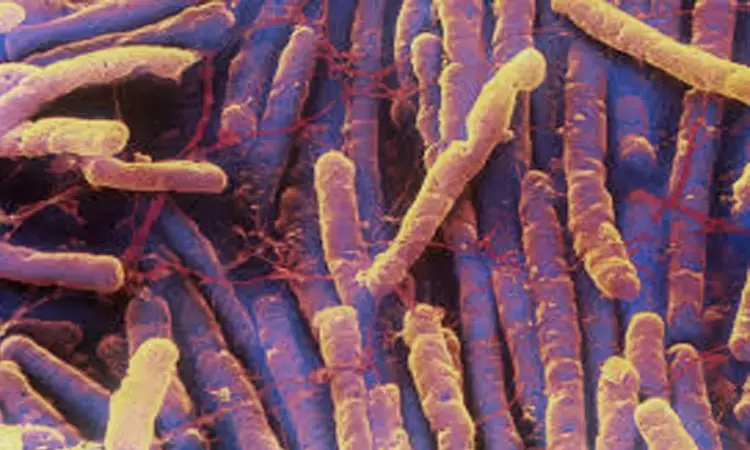- Home
- Medical news & Guidelines
- Anesthesiology
- Cardiology and CTVS
- Critical Care
- Dentistry
- Dermatology
- Diabetes and Endocrinology
- ENT
- Gastroenterology
- Medicine
- Nephrology
- Neurology
- Obstretics-Gynaecology
- Oncology
- Ophthalmology
- Orthopaedics
- Pediatrics-Neonatology
- Psychiatry
- Pulmonology
- Radiology
- Surgery
- Urology
- Laboratory Medicine
- Diet
- Nursing
- Paramedical
- Physiotherapy
- Health news
- Fact Check
- Bone Health Fact Check
- Brain Health Fact Check
- Cancer Related Fact Check
- Child Care Fact Check
- Dental and oral health fact check
- Diabetes and metabolic health fact check
- Diet and Nutrition Fact Check
- Eye and ENT Care Fact Check
- Fitness fact check
- Gut health fact check
- Heart health fact check
- Kidney health fact check
- Medical education fact check
- Men's health fact check
- Respiratory fact check
- Skin and hair care fact check
- Vaccine and Immunization fact check
- Women's health fact check
- AYUSH
- State News
- Andaman and Nicobar Islands
- Andhra Pradesh
- Arunachal Pradesh
- Assam
- Bihar
- Chandigarh
- Chattisgarh
- Dadra and Nagar Haveli
- Daman and Diu
- Delhi
- Goa
- Gujarat
- Haryana
- Himachal Pradesh
- Jammu & Kashmir
- Jharkhand
- Karnataka
- Kerala
- Ladakh
- Lakshadweep
- Madhya Pradesh
- Maharashtra
- Manipur
- Meghalaya
- Mizoram
- Nagaland
- Odisha
- Puducherry
- Punjab
- Rajasthan
- Sikkim
- Tamil Nadu
- Telangana
- Tripura
- Uttar Pradesh
- Uttrakhand
- West Bengal
- Medical Education
- Industry
Fecal Transplant Turns Cancer Immunotherapy Non-Responders into Responders

PITTSBURGH, - Researchers at UPMC Hillman Cancer Center and the National Cancer Institute (NCI) demonstrate that changing the gut microbiome can transform patients with advanced melanoma who never responded to immunotherapy-which has a failure rate of 40% for this type of cancer-into patients who do.
Some patients whose advanced melanomas did not initially respond to immunotherapy did have a response after receiving fecal transplants.
The results of this proof-of-principle phase II clinical trial were published online today in Science. In this study, a team of researchers from UPMC Hillman administered fecal microbiota transplants (FMT) and anti-PD-1 immunotherapy to melanoma patients who had failed all available therapies, including anti-PD-1, and then tracked clinical and immunological outcomes. Collaborators at NCI analyzed microbiome samples from these patients to understand why FMT seems to boost their response to immunotherapy.
"FMT is just a means to an end," said study co-lead author Diwakar Davar, M.D., a medical oncologist and member of the Cancer Immunology and Immunotherapy Program (CIIP) at UPMC Hillman and assistant professor of medicine at the University of Pittsburgh School of Medicine. "We know the composition of the intestinal microbiome—gut bacteria—can change the likelihood of responding to immunotherapy. But what are 'good' bacteria? There are about 100 trillion gut bacteria, and 200 times more bacterial genes in an individual's microbiome than in all of their cells put together."
Fecal transplant offers a way to capture a wide array of candidate microbes, testing trillions at once, to see whether having the "good" bacteria on board could make more people sensitive to PD-1 inhibitors. This study is among the first to test that idea in humans.
Davar and colleagues collected fecal samples from patients who responded extraordinarily well to anti-PD-1 immunotherapy and tested for infectious pathogens before giving the samples, through colonoscopy, to advanced melanoma patients who had never previously responded to immunotherapy. The patients were then given the anti-PD-1 drug pembrolizumab. And it worked.
Out of 15 advanced melanoma patients who received the combined FMT and anti-PD-1 treatment, six showed either tumor reduction or disease stabilization lasting more than a year.
"The likelihood that the patients treated in this trial would spontaneously respond to a second administration of anti-PD-1 immunotherapy is very low," said study co-senior author Hassane Zarour, M.D., a cancer immunologist and co-leader of the CIIP at UPMC Hillman as well as a professor of medicine at Pitt. "So, any positive response should be attributable to the administration of fecal transplant."
Analysis of samples taken from FMT recipients in this study revealed immunologic changes in the blood and at tumor sites suggesting increased immune cell activation in responders as well as increased immunosuppression in non-responders. Artificial intelligence linked these changes to the gut microbiome, likely caused by FMT.
Davar and Zarour hope to run a larger trial with melanoma patients, as well as evaluating whether FMT may be effective in treating other cancers. Ultimately, their goal is to replace FMT with pills containing a cocktail of the most beneficial microbes for boosting immunotherapy—but that's still several years away.
"Even if much work remains to be done, our study raises hope for microbiome-based therapies of cancers," said Zarour, who holds the James W. and Frances G. McGlothlin Chair in Melanoma Immunotherapy Research at UPMC Hillman.
https://www.upmc.com/media/news/020421-Davar-Zarour-Science
Hina Zahid Joined Medical Dialogue in 2017 with a passion to work as a Reporter. She coordinates with various national and international journals and association and covers all the stories related to Medical guidelines, Medical Journals, rare medical surgeries as well as all the updates in the medical field. Email: editorial@medicaldialogues.in. Contact no. 011-43720751
Dr Kamal Kant Kohli-MBBS, DTCD- a chest specialist with more than 30 years of practice and a flair for writing clinical articles, Dr Kamal Kant Kohli joined Medical Dialogues as a Chief Editor of Medical News. Besides writing articles, as an editor, he proofreads and verifies all the medical content published on Medical Dialogues including those coming from journals, studies,medical conferences,guidelines etc. Email: drkohli@medicaldialogues.in. Contact no. 011-43720751


